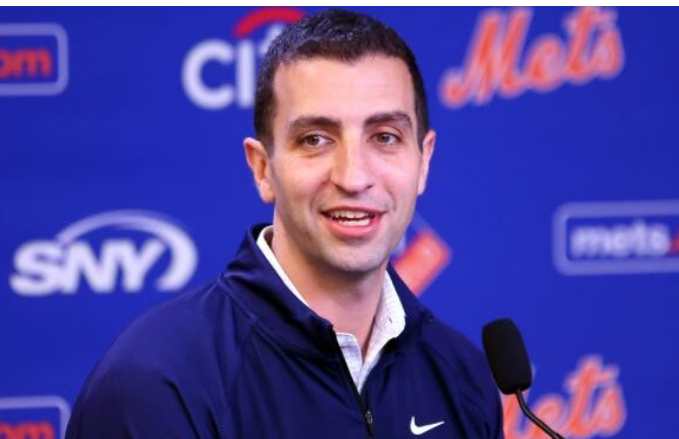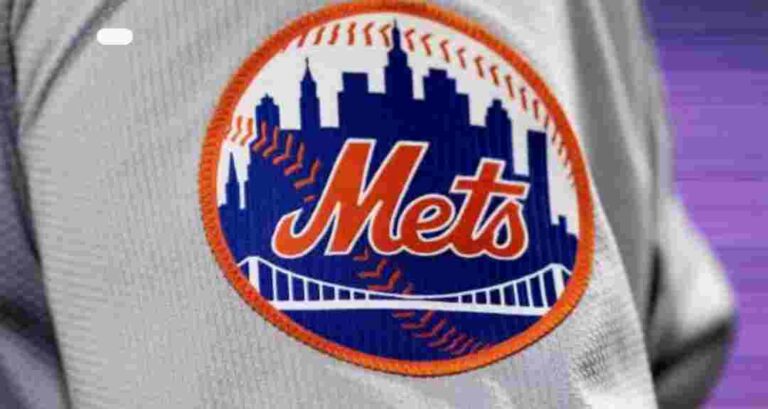
Mets Owner Sends Message to Pete Alonso After Winning Negotiation: A Closer Look

Introduction to the Situation
Negotiations play a crucial role in the world of professional sports, particularly in establishing the terms of player contracts and fostering productive relationships between management and athletes. The recent communication between New York Mets owner, Steve Cohen, and star first baseman, Pete Alonso, serves as a prime example of how these negotiations can unfold and impact the dynamics within a Major League Baseball team. Recognizing the significance of maintaining talent and ensuring mutual interests are addressed, Cohen’s message to Alonso highlights the need for effective dialogue in pursuit of shared objectives.
Following a remarkable season filled with exceptional achievements, Alonso has emerged not only as a key player for the Mets but also as a prominent figure in the MLB. His contributions on the field have garnered attention, making him a central player to the team’s aspirations for success. It is within this context that negotiations take on heightened importance, as organizations strive to secure their best talent while ensuring that players feel valued and recognized for their efforts. The interaction between the Mets’ ownership and Alonso reflects broader themes in athletics, where performance metrics and financial considerations often intersect.
As fans eagerly follow the developments in the MLB, the communication between Cohen and Alonso can be viewed as indicative of the changing landscape in which athletes operate. The emphasis on transparency and respect in negotiations signals a shift toward more humane and collaborative frameworks, which may set a precedent for future interactions within the sport. This situation not only showcases the intricacies of player negotiations but also outlines the evolving relationship between players and team management, providing valuable insights into the complexities of modern professional sports.
Background on Pete Alonso
Peter Morgan Alonso, known as Pete Alonso, has emerged as one of the central figures in the New York Mets organization since making his Major League Baseball (MLB) debut in 2019. An accomplished first baseman, Alonso quickly established himself as a powerhouse hitter, earning the 2019 National League Rookie of the Year award. His impressive performance during his rookie season set the tone for what would become a remarkable career highlighted by record-breaking moments and a strong fan following.
One of Alonso’s standout achievements came in 2019 when he shattered the rookie home run record by belting 53 home runs, a milestone that significantly contributed to his growing stature within the league. His ability to deliver in clutch situations, coupled with his impressive batting average, has made him a vital component of the Mets’ offensive strategy. His playing style showcases a mix of raw power and keen plate discipline, allowing him to consistently reach base and drive in runs. Alonso’s proficiency as a slugger has reinvigorated the Mets’ lineup, providing much-needed offense during critical games.
Off the field, Alonso’s connection with fans is noteworthy. He has often expressed his appreciation for the Mets’ loyal supporters and actively engages with the community through charitable endeavors. His charismatic personality and dedication to the sport have endeared him to fans, further solidifying his status as a beloved player in New York. As a pivotal player for the Mets, Pete Alonso’s influence extends beyond the diamond, with his performances and character playing a significant role in the team’s culture and aspirations for success. His recent contract negotiations signify the organization’s recognition of his importance and potential as they look to build a competitive future.
The Negotiation Process
The negotiation process between Pete Alonso and the New York Mets has drawn significant attention, highlighting the intricate nature of contract discussions in Major League Baseball. These negotiations typically revolve around key elements such as salary, duration, and performance incentives, which all play critical roles in determining a player’s future with the organization. For Alonso, a pivotal player for the Mets, the stakes were notably high, prompting a robust dialogue between both parties.
One of the primary challenges during the negotiation was aligning expectations. The Mets aimed to secure Alonso at a manageable cost while recognizing his value and contributions to the team. On the other hand, Alonso and his representatives sought a contract that fairly compensated his on-field performance and future potential. This tension is common in player negotiations, where teams must balance financial constraints with the need to maintain a competitive roster.
Strategies employed by both parties included leveraging data analytics to assess player performance and optimizing negotiation tactics. The Mets utilized statistical insights to justify their financial proposals, while Alonso’s team focused on past performance, showcasing his record as a valuable asset to the lineup. Furthermore, communication strategies played a crucial role. Open dialogue allowed for the identification of mutual interests and facilitated the exploration of potential compromises.
Ultimately, the negotiation process underscored the complexities involved in player contracts. It revealed the importance of strategic planning and effective communication in bridging the gap between a player’s aspirations and a team’s budgetary restrictions. As negotiations continue to evolve within Major League Baseball, understanding these dynamics is essential for both players and management, as it ultimately shapes the future of franchises.
Message from the Mets Owner
The recent communication from the owner of the New York Mets to star player Pete Alonso marks a significant moment in player relations and organizational culture within the franchise. The message conveyed appreciation for Alonso’s contributions to the team and underscored the commitment of the Mets to fostering a positive environment for their players. The owner articulated a clear acknowledgment of Alonso’s on-field performance and his role as a leader in the clubhouse, suggesting that the franchise recognizes the importance of its core players in driving both team success and morale.
The tone of the message was notably supportive and encouraging, indicating a desire to maintain an open line of communication between management and players. This demonstrates an organizational philosophy that values player engagement and seeks to build mutual respect among its members. By expressing enthusiasm toward Alonso’s work ethic and contributions, the owner not only reinforces Alonso’s significance within the Mets but also sets a precedent for how the team intends to approach player relations in the future. Such positive reinforcement can be essential in establishing a motivational atmosphere that encourages peak performance and loyalty amongst the players.
The implications of this communication extend beyond just Alonso; they serve as a signal to the entire roster about the owner’s dedication to building a cohesive team culture. The Mets aim to position themselves as an organization that fosters talent and nurtures relationships, an essential aspect that can positively influence recruitment, retention, and overall team dynamics. This message encapsulates an essential aspect of the Mets’ approach moving forward, as they seek not only to win games but to create an inclusive and supportive environment where players feel valued and motivated to excel.
Reactions from Pete Alonso
Following the recent negotiation victory, Pete Alonso’s response to the owner’s message reflects a combination of gratitude and determination. Alonso, who has become a pivotal player for the New York Mets, expressed his appreciation for the support from the ownership. In various public statements, he noted that the communication from the owner signifies a commitment to not only the team but also to the players who contribute to its success. This acknowledgment from management serves to bolster player morale, particularly for someone like Alonso, who has invested deeply in the franchise.
Pete Alonso highlighted the importance of open dialogue between players and management, suggesting that such interactions foster a positive environment. He emphasized that feeling valued as a player can significantly enhance commitment and performance on the field. Alonso’s statements underline his desire to remain a key figure within the organization, and his appreciation for the owner’s gesture underscores a mutual respect that is critical for long-term collaboration.
<pmoreover, a=”” alonso’s=”” among=”” and=”” beyond=”” can=”” cohesiveness=”” commitment=”” communications=”” contracts=”” decisions=”” elevate=”” franchise. Alonso has made it clear that he is focused on contributing to the team’s success, and his enthusiasm, fueled by the recent developments, can be a catalyst for the Mets’ ambitions moving forward. As he continues to engage with fans and embrace the team’s culture, Alonso’s sentiments may play a crucial role in shaping the team’s future trajectory.
Media Coverage and Public Response
The recent negotiations involving the Mets owner and first baseman Pete Alonso have captured significant attention across various media outlets. Sports analysts have echoed sentiments regarding the implications of this negotiation for both the player’s future and the broader outlook of the franchise. Commentators emphasize that the owner’s message signals a commitment to securing talented players while fostering a competitive environment. Such assessments often reflect on the Mets’ attempts to rebuild their image in Major League Baseball after a series of challenging seasons.
Social media has also become a vibrant platform for fans to express their opinions on the developments. Many supporters appears to be buoyed by the owners’ optimistic message, interpreting it as a signal of their willingness to invest in Alonso’s future. Tweets and posts abound with discussions surrounding the significance of Alonso’s contributions to the team and how a successful negotiation could pivotally influence the Mets’ performance in upcoming seasons. This interaction reflects a deeper connection between the team and its followers, showcasing the public’s eagerness for a winning franchise.
Furthermore, it is notable how this event places Alonso at the center of the narrative surrounding the Mets. The media coverage has largely centered not only on his negotiations but also on his statistics and achievements, painting him as an essential figure for the franchise’s aspirations. Various articles have highlighted Alonso’s status as a fan favorite, underscoring the reciprocal relationship between the player and the Mets’ supporters. Analysts suggest that this public endorsement from the owner could empower Alonso to excel both on and off the field, positively impacting team morale and performance.
Implications for the Mets’ Future
The recent negotiation between the Mets’ ownership and star player Pete Alonso offers significant insights into the franchise’s future strategy and direction. This interaction highlights a vital aspect of professional sports: the relationship between players and management. A harmonious and communicative dynamic can foster an environment conducive to success on and off the field.
One immediate implication of this negotiation is the potential for a renewed focus on team cohesion. Alonso, being one of the standout players for the Mets, not only contributes significantly on the field but also represents the team’s competitive spirit. Aligning the interests of key players like Alonso with ownership’s vision can lead to enhanced morale and motivation within the roster. Such alignment bodes well for the overall performance of the team as they navigate the challenges accompanying a long season.
Moreover, this negotiation may signal a strategic pivot towards prioritizing homegrown talent. By maintaining strong relationships with their prominent players, the Mets can encourage the development of a competitive roster without overly relying on high-cost acquisitions. This approach can ensure fiscal responsibility while still aiming for success in major league standings. With a focus on sustainability, it allows the franchise to build a winning culture from within, capitalizing on the talent present in their minor league system.
Furthermore, this negotiation indicates a broader commitment from ownership to invest in the future of the franchise. When players feel valued, they are more likely to perform at their peak, which can lead to greater on-field success. This dynamic may also influence attracting prospective free agents who seek an organization that values its players and fosters a collaborative atmosphere. Overall, the outcomes of these negotiations and communications between the Mets’ ownership and Pete Alonso can lead to a promising future for the team, setting a precedent for other player-owner relationships in the league.
Comparative Analysis with Other MLB Negotiations
The recent negotiation process involving Pete Alonso and the New York Mets raises interesting comparisons to other player negotiations within Major League Baseball (MLB). Notably, the dynamic between player demands and team responses is a recurring theme, with some organizations demonstrating a more proactive and accommodating approach than others. Historical precedents in the league provide valuable context for understanding these interactions.
For example, the contract negotiations of Bryce Harper with the Washington Nationals showcased a situation where the player’s expectations significantly exceeded the club’s willingness to compromise. Harper ultimately entered the free agency market, emphasizing the leverage that high-profile players could exercise when they feel undervalued. This negotiation outcome mirrors Alonso’s scenario, highlighting a common tension in MLB where player performance and franchise policy often collide.
Another pertinent case is that of Anthony Rizzo during his tenure with the Chicago Cubs. Rizzo’s negotiation process was marked by mutual respect and a clear understanding of his contributions to the team, which resulted in a contract that reflected both parties’ interests. In contrast, the recent dealings between Alonso and the Mets suggests a noteworthy shift, where the club’s focus on fiscal responsibility and long-term strategy has led to a more cautious stance in negotiations. This highlights a potential trend among MLB teams, particularly in an era of economic uncertainty.
Furthermore, the handling of negotiations with young stars, such as Ronald Acuña Jr. by the Atlanta Braves, also provides insights into varying team philosophies. Acuña secured a long-term deal early in his career, indicating a willingness by the Braves to invest in their future. Such proactive negotiations can foster loyalty and stability within the organization, benefiting both the player and franchise. Ultimately, Alonso’s situation serves as a bellwether for MLB’s evolving landscape concerning negotiations and their implications for player-team relations.
Conclusion and Forward-Looking Statements
In reviewing the recent negotiations between the New York Mets and their star first baseman, Pete Alonso, it is clear that this outcome will have significant implications for both the player and the organization. The Mets’ owner effectively communicated the team’s commitment to Alonso, demonstrating a willingness to invest in their talent and build around him as a central figure in their lineup. This negotiation not only signifies an important milestone in Alonso’s career but also reflects the franchise’s strategic direction moving forward.
Throughout this process, the Mets have positioned themselves to enhance their competitive edge in Major League Baseball. Alonso’s continued growth as a player is anticipated to further elevate the team’s performance in the upcoming season. Given Alonso’s impressive batting power and defensive capabilities, analysts predict that he will play a crucial role in driving the Mets towards a successful campaign. The Mets’ management appears optimistic that this agreement will foster a cohesive environment that encourages team synergy and productivity.
Looking ahead, this negotiation sets a precedent for how the Mets will handle player contracts in the future. It underscores the significance of fostering strong relationships between management and players, which can be pivotal for long-term success. As other teams observe this approach, it could influence their negotiation strategies regarding player retention and development. Overall, this agreement reflects the Mets’ vision for building a formidable roster that can contend for championships in the coming years. The commitment made towards Pete Alonso is not merely about this season; it signals a broader aspiration to maintain competitiveness within the league, ensuring that the Mets remain a relevant force in baseball for seasons to come.



